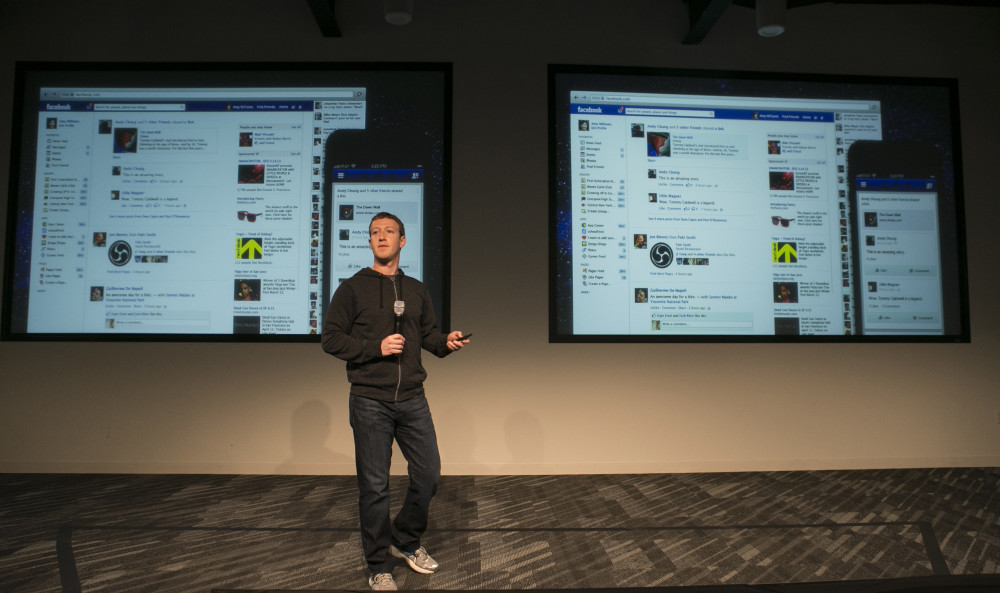By Brandon Bailey
San Jose Mercury News.
In a move that transgender advocacy groups called a major step toward broader acceptance, Facebook Inc. said Thursday that it will offer new options for people to describe their gender on the world’s biggest online social network, in addition to “male” and “female.”
More than 50 options, in fact, including “gender questioning,” “androgynous,” “intersex” and “neither.”
While a few Facebook users questioned the need for a change, the new policy was praised by activists who said they’ve been asking Facebook to provide more alternatives for some time.
“Facebook has taken a milestone step to allow countless people to more honestly and accurately represent themselves,” said Chad Griffin, president of the Human Rights Campaign, a leading advocacy group for lesbian, gay, bisexual and transgender people.
Advocacy groups said Facebook has a strong track record of supporting civil rights for gay and lesbian employees and members of the social network. But spokesmen said the latest move is both comforting and empowering for people who too often face discrimination or harassment over their sexual identity.
The change is especially significant because Facebook, which boasts more than 1 billion active users, has become one of the primary places where many people interact online. At least 700,000 people in the United States identify as transgender, according to an Associated Press account of a University of California-Los Angeles study.
“Over the past few years, a person’s Facebook profile truly has become their online identity,” said Griffin.
“It’s a huge deal, in a positive way, for those who identify outside the binary,” added Nori Herras-Castaneda, an outreach staffer at the Billy DeFrank LGBT Community Center in San Jose, Calif. A transgender person herself, Herras-Castaneda said some people become frustrated by enrollment or registration forms that only offer two choices.
Facebook acknowledged that point in announcing its new policy, which is effective only in the United States for now.
“While to many this change may not mean much, for those it affects it means a great deal,” said spokesman Will Hodges in an emailed statement.
Members of the rival Google Plus social network have long been allowed to identify themselves as “male,” “female” or “other.”
Herras-Castaneda said she was impressed that Facebook came up with more than 50 alternatives. “They went above and beyond,” she said of the list, which also includes “non-binary,” “pangender” and “gender questioning.”
Facebook said it worked closely with activist groups to develop the list and the new policy. Facebook users will be allowed to list up to ten terms from the list on their profiles. They can also choose to have Facebook refer to them with a gender-neutral pronoun,so, for example, Facebook might send a reminder to congratulate a friend on “their” birthday, instead of “his” or “her” birthday.
Facebook said users can choose who sees their gender identification, and it won’t publish a change as a public event. That’s helpful because many transgender people worry about negative reactions when they come out publicly, said Herras-Castaneda. “So having those options for sharing the information gives them more power.”
Some groups were less enthusiastic. “Facebook is entitled to manage its wildly popular site as it sees fit, but here is the bottom line: it’s impossible to deny the biological reality that humanity is divided into two halves, male and female,” said Jeff Johnston at the conservative group Focus on the Family.
Transgender advocates hope Facebook’s move may change some views. “There’s still a lot of education that needs to take place,” Herras-Castaneda said.














































































































































































































































































































































































